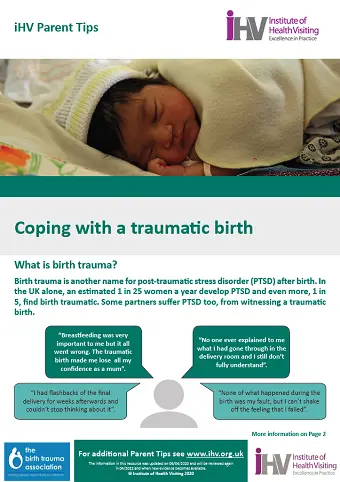We are delighted share a number of updated Good Practice Points and Parent Tips resources:
Good Practice Point – Duchenne Muscular Dystrophy – recognition, diagnosis and clinical care
These Good Practice Points set out what health visitors need to know about the recognition, diagnosis and clinical care of Duchenne Muscular Dystrophy.
Good Practice Point – Recognition and Management of Hyperemesis Gravidarum
HG is a serious complication of pregnancy which requires active intervention and treatment. It is diagnosed when symptoms start in early pregnancy (before 16 weeks gestational age); nausea and vomiting is present, at least one of which severe; the ability to eat and drink normally is affected and activities of daily living are strongly limited.
This GPP provides up-to-date evidence and references.
Good Practice Point – Umbilical Granuloma
These Good Practice Points set out what health visitors need to know about the Treatment of Umbilical Granuloma.
This GPP provides up-to-date evidence and references.
Good Practice Point – Working with prisoners’ families
Every year around 310,000 children experience the imprisonment of a parent in the UK, which is more than the number of children affected by divorce. Prisoners’ partners, children and other family members often feel lonely, stigmatised and unsure where to turn for help, support, advice and information. Health Visitors can play a key role in supporting prisoners’ families, and in helping family members access useful services and sources of advice. These Good Practice Points set out what health visitors need to know about working with Prisoners’ Families.
Good Practice Point – Postpartum psychosis
Postpartum psychosis (PP), also known as puerperal psychosis and postnatal psychosis, is a severe illness that involves hallucinations, delusions, mania, severe confusion, or unusual behaviour occurring, often with acute onset, in the postnatal period.
These Good Practice Points set out what health visitors need to know about Postpartum Psychosis.
Good Practice Point – Supporting good practice with toilet training
Health visitors have an important role in supporting toilet training for all children and assisting school readiness. Toilet training involves important skills that HVs can promote and discuss with families, regardless of the child’s ability.
Parent Tip – Toilet Training
Toilet training is about your child learning a set of skills. Making the transition from nappy to potty, or toilet, can result in a sense of achievement for you both.
Parent Tip – Childhood Cancer: spotting the signs & symptoms
Childhood cancer is rare, but it does occur more frequently than most of us think. It may come as a surprise, but cancer is one of the biggest medical causes of death in children in the UK. Statistically, 1 in 450 children are diagnosed with cancer before they reach the age of 15. Every year, there are 4,000 children and young people diagnosed with cancer in the UK. Despite this fact, few of us are aware of the signs and symptoms.
The aim of these Top Tips is to make you aware of what to look for in your child to enable affected children to be diagnosed early. Early diagnosis of childhood cancer saves lives.



